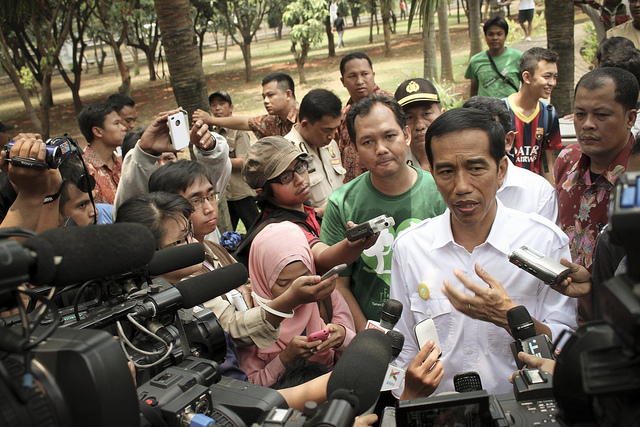Saudi Arabia executes domestic worker who killed her attempted rapist

Saudi Arabia has executed an Indonesian woman who was living in the country as a domestic worker. Tuti Tursilawati, a mother of one said to be in her early 30s, killed her employer in 2010 as he tried to rape her, according to multiple news reports.
On October 30, two days after Tursilawati was put to death, Amnesty International Indonesia Director Usman Hamid spoke to Indonesian magazine Tempo, saying: “For [the] umpteenth time Saudi Arabia has hurt the diplomatic ethics of both countries that should have put forth the respect for human rights.”
Labor activists have long been concerned about the conditions domestic workers face in Saudi Arabia. “While many domestic workers enjoy decent work conditions, others endure a range of abuses including non-payment of salaries, forced confinement, food deprivation, excessive workload, and instances of severe psychological, physical, and sexual abuse,” Human Rights Watch wrote in a 2008 report. The group said it had documented dozens of cases “where the combination of these conditions amounted to forced labor, trafficking, or slavery-like conditions.”
Works permits in Saudi Arabia are tied to the individual employer, meaning that if a woman decides to leave the job she may face immediate deportation. Moreover, many recruiters and employers confiscate the passports of domestic workers when they arrive in the country, creating additional hurdles for people who want to escape abusive situations.
In May, the Middle East Eye published a story about two Bangladeshi women who had spent months in a safe house in Jeddah after fleeing their Saudi employers’ homes. Khaleda Akhter, 28, ran away after her Saudi sponsor died and his wife and her family started to beat her. One day, they tried to burn her alive. “I remember the trickle of petrol going down my back,” she told the outlet. “I thought I was dreaming. Then I started to feel the heat. That's when I started screaming and panicking. It just made no sense. Why would they do this to me?”
Women told HRW that while some police officers were willing to help them, others ordered them to return to their sponsors’ homes. Survivors of sexualized violence may be especially afraid of reporting their assaults to the authorities, since sex outside of marriage is considered a crime in Saudi Arabia. Foreign domestic workers who end up in prison are most frequently locked up on charges of “adultery, fornication, prostitution, and being in the presence of unrelated men,” sometimes after being raped by their employers, according to the group’s 2008 report.
Tursilawati was sentenced to death in 2011, but her execution in October came suddenly. Indonesian President Joko Widodo called the Saudi Foreign Minister on October 31 to express outrage that he had not been notified the sentence would be carried out. Tursilawati was the fourth Indonesian migrant that Saudi Arabia has killed in the past three years without notifying Jakarta.
Saudi Arabia’s poor human rights record has been scrutinized more than usual recently, ever since journalist Jamal Khashoggi was brutally murdered in the Saudi consulate in Istanbul, sparking international outrage.
Meanwhile, there are several other women awaiting execution in the Kingdom, including Israa al-Ghomgham, who was convicted on terrorism-related offenses for engaging in nonviolent human rights work.
More articles by Category: Gender-based violence, International, Violence against women
More articles by Tag:



























